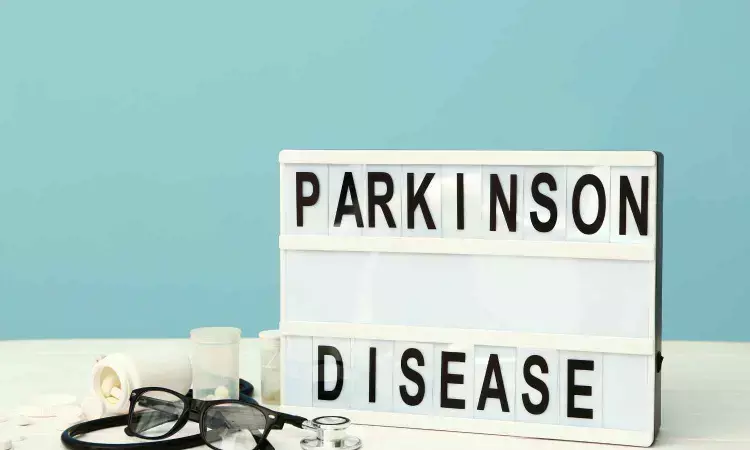- Home
- Medical news & Guidelines
- Anesthesiology
- Cardiology and CTVS
- Critical Care
- Dentistry
- Dermatology
- Diabetes and Endocrinology
- ENT
- Gastroenterology
- Medicine
- Nephrology
- Neurology
- Obstretics-Gynaecology
- Oncology
- Ophthalmology
- Orthopaedics
- Pediatrics-Neonatology
- Psychiatry
- Pulmonology
- Radiology
- Surgery
- Urology
- Laboratory Medicine
- Diet
- Nursing
- Paramedical
- Physiotherapy
- Health news
- Fact Check
- Bone Health Fact Check
- Brain Health Fact Check
- Cancer Related Fact Check
- Child Care Fact Check
- Dental and oral health fact check
- Diabetes and metabolic health fact check
- Diet and Nutrition Fact Check
- Eye and ENT Care Fact Check
- Fitness fact check
- Gut health fact check
- Heart health fact check
- Kidney health fact check
- Medical education fact check
- Men's health fact check
- Respiratory fact check
- Skin and hair care fact check
- Vaccine and Immunization fact check
- Women's health fact check
- AYUSH
- State News
- Andaman and Nicobar Islands
- Andhra Pradesh
- Arunachal Pradesh
- Assam
- Bihar
- Chandigarh
- Chattisgarh
- Dadra and Nagar Haveli
- Daman and Diu
- Delhi
- Goa
- Gujarat
- Haryana
- Himachal Pradesh
- Jammu & Kashmir
- Jharkhand
- Karnataka
- Kerala
- Ladakh
- Lakshadweep
- Madhya Pradesh
- Maharashtra
- Manipur
- Meghalaya
- Mizoram
- Nagaland
- Odisha
- Puducherry
- Punjab
- Rajasthan
- Sikkim
- Tamil Nadu
- Telangana
- Tripura
- Uttar Pradesh
- Uttrakhand
- West Bengal
- Medical Education
- Industry
Untreated sleep apnea raises risk of Parkinson's, JAMA study finds

New research reveals that people with untreated obstructive sleep apnea have a higher risk of developing Parkinson's disease. However, they can significantly reduce the risk by improving the quality of their sleep by using continuous positive airway pressure, or CPAP.
The study, which published today in the journal JAMA Neurology, examined electronic health records covering more than 11 million U.S. military veterans who received care through the Department of Veterans Affairs between 1999 and 2022.
The research was led by Oregon Health & Science University and the Portland VA Health Care System.
Parkinson’s is a neurodegenerative condition that affects an estimated 1 million people nationwide, with the risk rising incrementally year by year for people over age 60.
The new study suggests a heightened risk of people with untreated sleep apnea developing Parkinson’s over the long term.
Even after adjusting to rule out confounding factors like obesity, age and high blood pressure, the study found a strong link between untreated sleep apnea and Parkinson’s. Among millions of people with sleep apnea, those who didn’t treat the condition with CPAP were nearly twice as likely to have Parkinson’s as those who did.
“It’s not at all a guarantee that you’re going to get Parkinson’s, but it significantly increases the chances,” said co-author Gregory Scott, M.D., Ph.D., assistant professor of pathology in the OHSU School of Medicine and a pathologist for at the VA Portland.
Sleep apnea is a common condition where an individual’s breathing stops and restarts many times during sleep, which can prevent the body from getting enough oxygen.
“If you stop breathing and oxygen is not at a normal level, your neurons are probably not functioning at a normal level either,” said lead author Lee Neilson, M.D., assistant professor of neurology at OHSU and a staff neurologist at the Portland VA. “Add that up night after night, year after year, and it may explain why fixing the problem by using CPAP may build in some resilience against neurodegenerative conditions, including Parkinson’s.”
Neilson said he intends to prioritize the health benefits of sound sleep with his patients, especially in view of the research revealing an elevated risk of Parkinson’s.
“I think it will change my practice,” he said.
Scott noted that even though some people with sleep apnea resist treatment with CPAP, he pointed to the experience of many veterans who swear by it.
"The veterans who use their CPAP love it," he said. "They're telling other people about it. They feel better, they're less tired. Perhaps if others know about this reduction in risk of Parkinson's disease, it will further convince peopel with sleep apnea to give CPAP a try."
Reference:
Neilson LE, Montaño I, May JL, et al. Obstructive Sleep Apnea, Positive Airway Pressure, and Implications of Early Treatment in Parkinson Disease. JAMA Neurol. Published online November 24, 2025. doi:10.1001/jamaneurol.2025.4691.
Dr Kamal Kant Kohli-MBBS, DTCD- a chest specialist with more than 30 years of practice and a flair for writing clinical articles, Dr Kamal Kant Kohli joined Medical Dialogues as a Chief Editor of Medical News. Besides writing articles, as an editor, he proofreads and verifies all the medical content published on Medical Dialogues including those coming from journals, studies,medical conferences,guidelines etc. Email: drkohli@medicaldialogues.in. Contact no. 011-43720751


